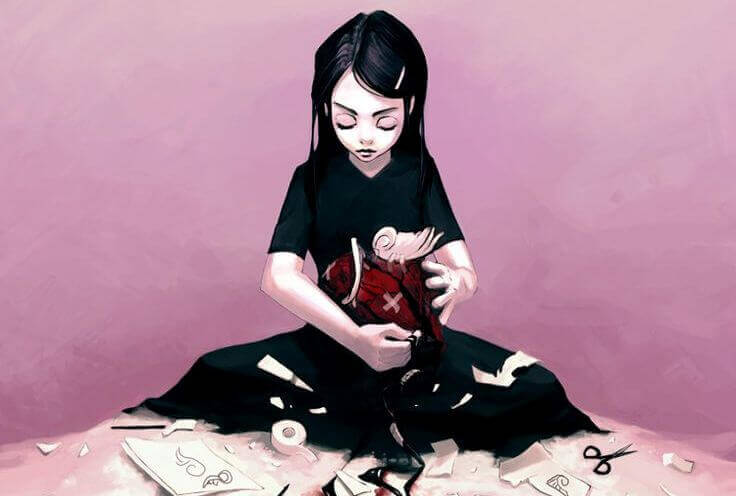Bad things leave us empty, I’m sorry, confused. We feel the disappointment of love as if we had had a part taken away from us, and the truth is that it is something like that. Scientific research has shown that people involved in long-term romantic relationships develop interdependent memories, making each individual part of a system on which both people depend.
When the relationship ends, this disconnection is lived traumatically, it is as if a limb has been amputated and the body reacts in search of this learned addiction, in the manner of withdrawal syndrome from those who are related to a certain substance. .
- Falling in love with someone is an emotional emotional process that has many effects on the brain.
- So when it comes time to break down the partner.
- There are several impacts on the brain.
- During love disappointment.
- The same areas that are activated.
- Physical pain is triggered when we experience emotional pain.
Feelings look like waves. We can’t stop them from approaching us, but we can choose which one to navigate.
Various research shows that the same areas of the brain that are activated when a person falls in love, which produce attachment and desire to be with that person, are triggered by a rupture, this means that in addition to the pain that causes the termination situation itself, the person can still feel attachment to their partner.
John Cacioppo, director of the Center for Cognitive and Social Neuroscience at the University of Chicago in the United States, says that we were designed to create stable emotional bonds and that these bonds break a lot of suffering because the person in whom we trust and believe has failed. .
The results of other research done on people who felt depressed shortly after a romantic breakup show that the body, reacting to pain, can release the same hormones we release when we feel stressed, hormones that in turn can affect a person’s normal activity. digestive system or heart.
If we go through similar situations, we know that it hurts a lot, but that life goes on, friends, family, our passions and our internal resources will help us overcome the situation. The breakup process is like falling in love again, but the other way around. Neurological reactions caused by loving passion are similar in both cases.
Strength doesn’t depend on how long you can take before taking a break, but how much you can take after the break.
Several studies have shown that as the romantic relationship develops, the idealization of the loved one is attenuated, but in the end, everything floods again. The reward systems of the brain during the love deception still expect to receive their “dose of love”, but since they do not get the right answer, their reaction, as with drugs, is to increase the volume of this call.
This brain reward system that requires your dose of screaming is what ultimately leads us to behave impulsively or stupidly after the end of a relationship. When we write farewell messages to our ex-partners, we actually respond to the chemical imbalances of our own brains.
In short, love when it ends hurts is a physical and real suffering that can last for months, but that pain is part of the healing and overcoming process. Various brain exams performed on people during the romantic deception phase have pointed out that it exists It is a particular activity in areas of the prefrontal cortex, the region of the brain involved in personality expression, decision-making processes and planning cognitively complex behaviors.
In other words, as we cry and cry, brain chemistry is already working to reorganize behaviors, balance emotions, and move us forward again.
Remember when you thought you couldn’t live without that person?Look at you, you’re still alive.

